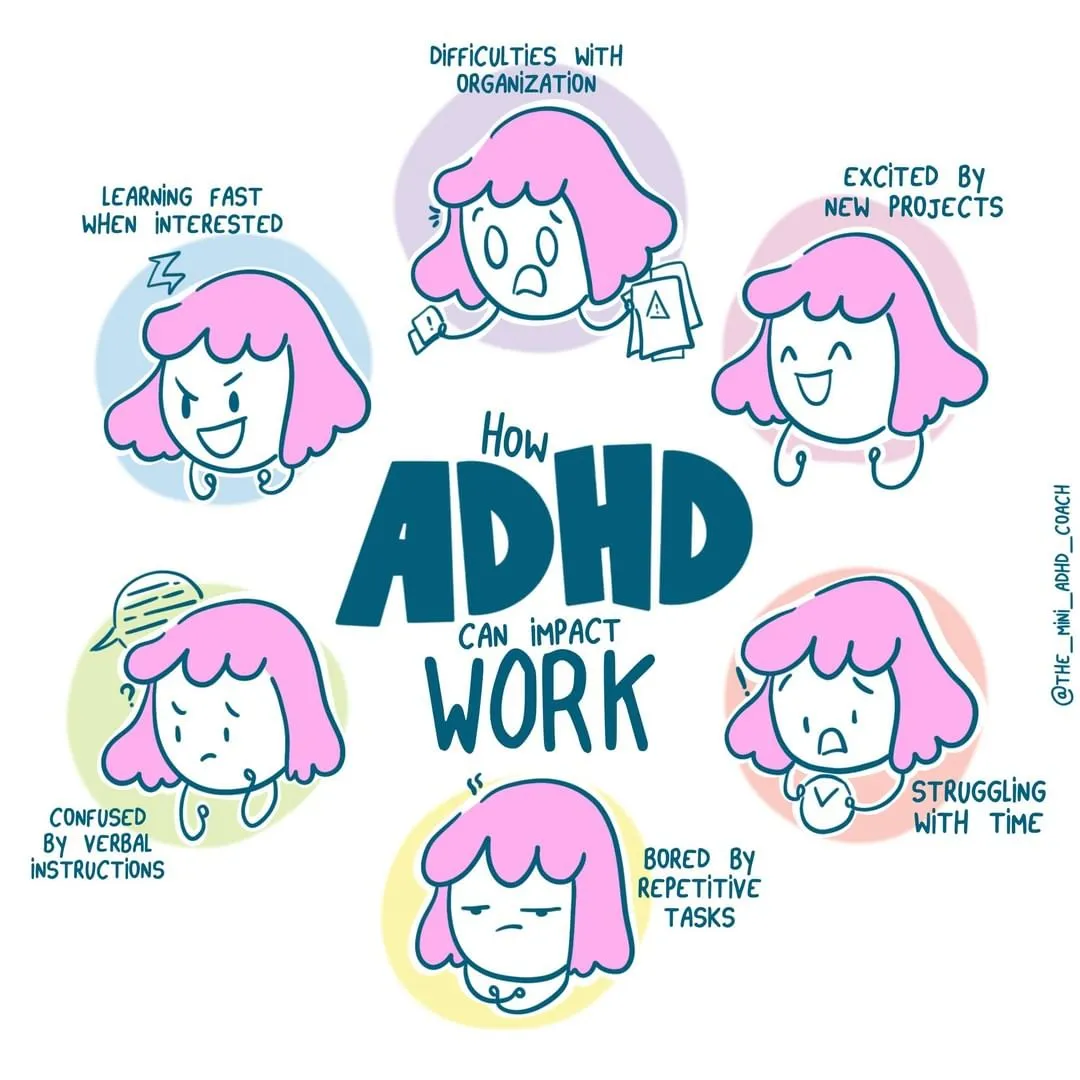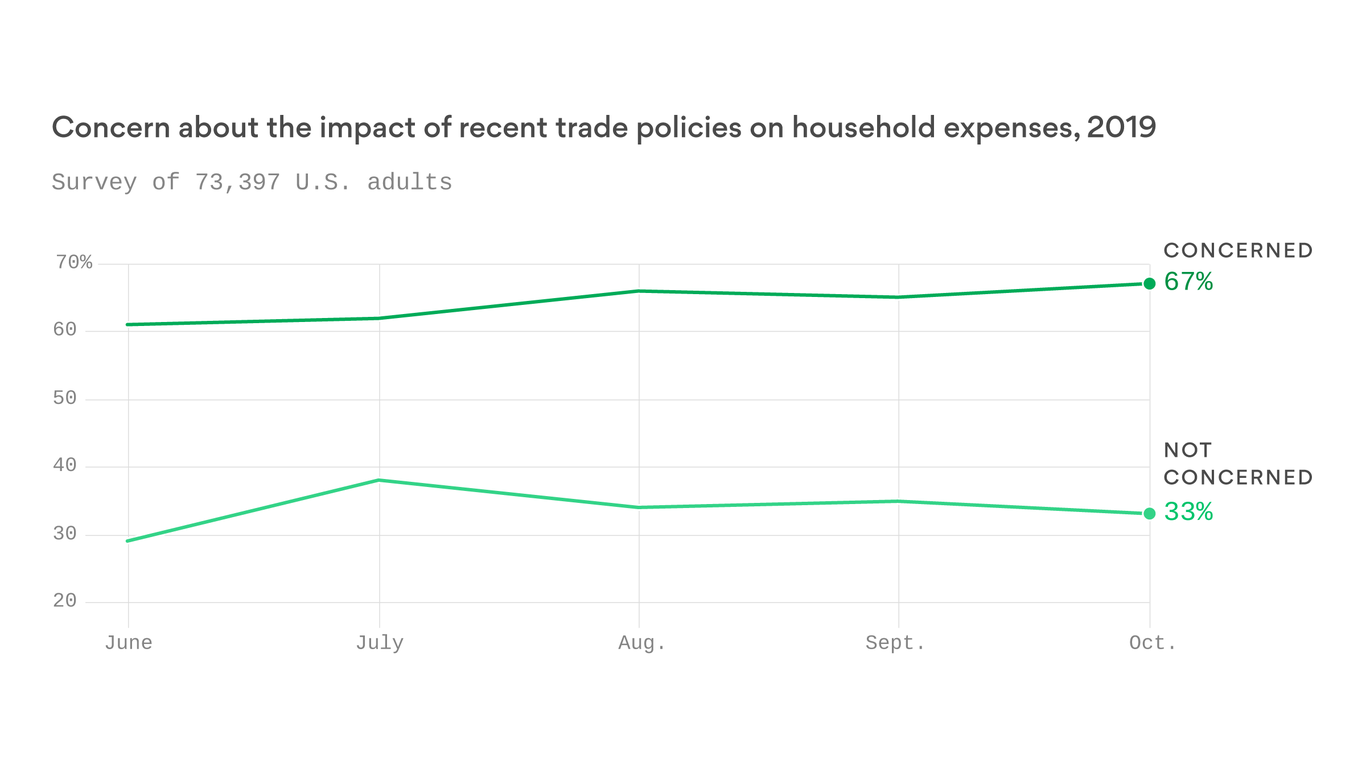Inside Our ADHD Minds: Understanding The Unique Challenges And Strengths

Table of Contents
The Challenges of ADHD
Living with ADHD presents a unique set of obstacles that impact various aspects of life. Understanding these challenges is crucial for developing effective coping strategies and fostering empathy and support.
Difficulties with Focus and Attention
Individuals with ADHD frequently experience difficulties with focus and sustained attention. This isn't simply a matter of being "lazy" or "inattentive;" it's a neurological difference.
- Difficulty concentrating on tasks: Maintaining focus on a single task for an extended period is a significant challenge. This can manifest as frequent mind-wandering and difficulty completing tasks.
- Easily distracted: External stimuli, internal thoughts, and even subtle noises can easily divert attention, leading to significant disruptions in work, study, and social interactions.
- Problems with sustained attention: Sustaining attention over time is often difficult, leading to incomplete projects and a feeling of being overwhelmed.
- Hyperfocus as a double-edged sword: While some individuals with ADHD experience hyperfocus—an intense, laser-like concentration on a specific task—this can be unpredictable and often comes at the expense of other responsibilities. It's a powerful tool, but difficult to control.
- Impact on academic/professional performance: Difficulties with focus and attention can significantly impact academic and professional performance, leading to lower grades, missed deadlines, and challenges in maintaining employment. This is true for all ADHD subtypes: predominantly inattentive, predominantly hyperactive-impulsive, and combined.
The impact on daily life can range from minor frustrations to significant impairments, depending on the severity of symptoms and the individual's support system. For example, a student with ADHD might struggle to complete assignments, while an adult might find it challenging to maintain a structured work schedule.
Impulsivity and Hyperactivity
Impulsivity and hyperactivity are other core symptoms of ADHD, often causing significant challenges in social and professional settings.
- Acting before thinking: Individuals with ADHD may act impulsively without considering the consequences, leading to regrettable decisions and strained relationships.
- Interrupting conversations: The inability to control impulses can lead to frequent interruptions, sometimes unintentionally causing offense.
- Difficulty waiting one's turn: Impulsivity often manifests as an inability to patiently wait for one's turn in conversations, games, or other situations.
- Fidgeting and restlessness: Constant fidgeting, restlessness, and difficulty staying still are common physical manifestations of hyperactivity.
- Excessive talking: Some individuals with ADHD may experience excessive talking, often without considering the listener's engagement or interest.
These behaviors can lead to social challenges, accidents, and relationship difficulties. For instance, impulsivity might lead to reckless driving, while hyperactivity might make it difficult to sit through meetings or lectures.
Emotional Dysregulation
ADHD is often linked to challenges in emotional regulation. This means that individuals with ADHD may experience more intense emotional responses and find it harder to manage their feelings.
- Intense emotional responses: Emotional responses can be disproportionately intense compared to the situation, leading to emotional overwhelm.
- Mood swings: Rapid and unexpected shifts in mood are common, ranging from extreme happiness to intense sadness or anger.
- Difficulty managing frustration: Frustration can be particularly difficult to manage, potentially leading to outbursts or emotional meltdowns.
- Anger outbursts: Uncontrolled anger outbursts can be a significant challenge, impacting relationships and overall well-being.
- Emotional sensitivity: A heightened sensitivity to emotions, both their own and others', can be both a strength and a challenge.
This emotional dysregulation stems from difficulties in the brain's executive function systems that regulate emotions. Learning coping mechanisms, such as mindfulness and emotional regulation techniques, can significantly improve emotional well-being.
Organizational and Time Management Issues
Challenges with organization and time management are pervasive amongst individuals with ADHD.
- Difficulty prioritizing tasks: Determining which tasks are most important and prioritizing them accordingly can be incredibly difficult.
- Procrastination: Procrastination is often a coping mechanism to avoid the overwhelm of tackling tasks.
- Disorganization: Disorganization can manifest in various ways, from cluttered workspaces to lost belongings and missed appointments.
- Missed deadlines: Missed deadlines are a common consequence of difficulties with planning and time management.
- Poor planning skills: Planning ahead, even for simple tasks, can be challenging, leading to unpreparedness and last-minute rushes.
Strategies such as time-blocking, using visual aids, and breaking down large tasks into smaller, manageable steps can significantly improve organization and time management for individuals with ADHD.
The Strengths of ADHD
While ADHD presents significant challenges, it's also associated with a range of remarkable strengths that often contribute to success and personal fulfillment. These strengths highlight the neurodiversity inherent in ADHD and challenge negative stereotypes.
Creativity and Innovation
The unique brain wiring associated with ADHD can fuel exceptional creativity and innovation.
- Thinking outside the box: Individuals with ADHD often approach problems from unconventional angles, leading to innovative solutions.
- Generating novel ideas: The tendency towards divergent thinking allows for the generation of a wide range of creative ideas.
- Innovative problem-solving: ADHD minds can excel at finding creative solutions to complex problems.
- Strong imagination: A vivid imagination is a common trait, contributing to artistic expression and innovative thinking.
- Artistic talent: Many individuals with ADHD demonstrate significant artistic talent, expressing their creativity through various mediums.
This creative spark can lead to breakthroughs in various fields, from art and music to science and technology.
Hyperfocus and Deep Work
The ability to engage in hyperfocus, although challenging to control, offers significant advantages when harnessed effectively.
- Ability to intensely focus on engaging tasks: When hyperfocus occurs, individuals with ADHD can achieve remarkable levels of concentration and productivity.
- High levels of productivity during periods of hyperfocus: Tasks that might otherwise seem daunting can be completed with exceptional efficiency during these periods.
- Deep engagement in passions and hobbies: Hyperfocus allows for deep engagement in activities that genuinely interest the individual, fueling passion and expertise.
Learning to trigger and manage hyperfocus is a valuable skill that can significantly boost productivity and personal fulfillment.
Energy and Enthusiasm
Individuals with ADHD often possess high levels of energy and enthusiasm, contributing to their drive and passion.
- High energy levels: Sustained high energy levels can fuel relentless pursuit of goals and interests.
- Passion and drive: A strong sense of passion and drive can be a powerful motivator, leading to exceptional achievement.
- Enthusiasm for new challenges: Individuals with ADHD often embrace new challenges with enthusiasm and excitement.
- Relentless curiosity: A relentless curiosity drives exploration and learning, fueling intellectual growth and personal development.
This energy and enthusiasm can translate into success in various fields, provided that it's channeled effectively.
Strong Empathy and Intuition
Heightened emotional sensitivity is often associated with ADHD, leading to strong empathy and intuition.
- Heightened emotional sensitivity: An increased awareness of emotions, both their own and others', contributes to emotional intelligence.
- Understanding others' feelings: Individuals with ADHD can often intuitively understand and empathize with the feelings of others.
- Strong intuition and insight: This heightened emotional awareness can lead to strong intuition and insightful observations.
This emotional intelligence, while challenging to manage at times, can be a significant asset in interpersonal relationships and leadership roles.
Conclusion
Understanding the ADHD mind requires acknowledging both the challenges and the remarkable strengths inherent in this neurodevelopmental condition. From difficulties with focus and emotional regulation to exceptional creativity and intense energy, the ADHD experience is complex and multifaceted. The challenges are real and require understanding and support, but the strengths are equally significant and should be celebrated and nurtured.
By understanding the unique challenges and strengths inherent in ADHD minds, we can foster a more supportive and inclusive environment for everyone. Embrace your ADHD strengths and learn effective coping mechanisms for the challenges; explore resources on ADHD today. There are numerous books, websites, and support groups available to help you navigate the complexities of living with ADHD and unlock your full potential.

Featured Posts
-
 Efl Highlights 2023 24 A Season Of Thrilling Football
May 13, 2025
Efl Highlights 2023 24 A Season Of Thrilling Football
May 13, 2025 -
 Landman Season 2 The Cast Thats Returning
May 13, 2025
Landman Season 2 The Cast Thats Returning
May 13, 2025 -
 Kentucky Derby Winner Faces 62 000 Fine And Suspension For Excessive Whipping
May 13, 2025
Kentucky Derby Winner Faces 62 000 Fine And Suspension For Excessive Whipping
May 13, 2025 -
 Analyzing The Effects Of U S China Tariff Rollbacks On The American Economy
May 13, 2025
Analyzing The Effects Of U S China Tariff Rollbacks On The American Economy
May 13, 2025 -
 Winterwatch Checklist Everything You Need For A Successful Trip
May 13, 2025
Winterwatch Checklist Everything You Need For A Successful Trip
May 13, 2025
